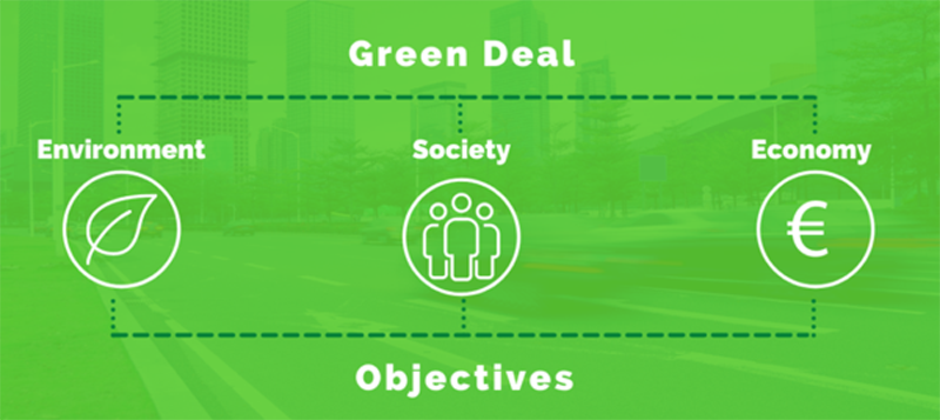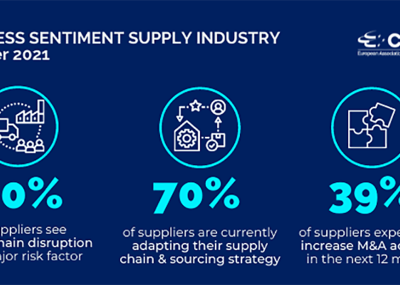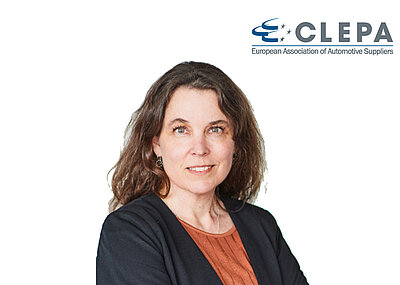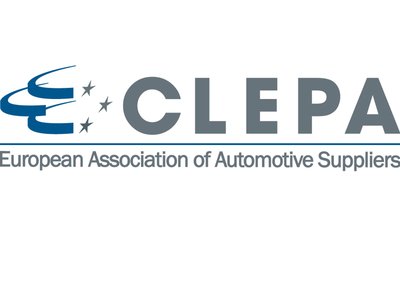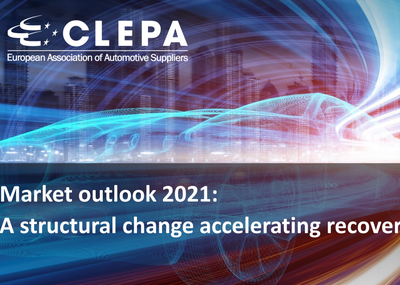CLEPA, the European association of automotive suppliers, held a high-level round table yesterday on the green transformation within the mobility sector, discussing the impact of the various available policy instruments on the employment and manufacturing footprint in Europe with representatives from academia, workers associations, mobility-technology industry, and government.
Among the participants were Sigmar Gabriel, former Vice-Chancellor of Germany, Prof. Renate Köcher, CEO of IfD Allensbach, Prof. José María López from the Technical University of Madrid, Prof. Uwe Cantner, from the Friedrich Schiller University of Jena and advisor to the German government, Prof. Bernhard Geringer from the Technical University of Vienna, Judith Kirton-Darling, Deputy Secretary-General of IndustriAll Europe, Sigrid de Vries, Secretary General of CLEPA, and several executives from automotive suppliers from Austria, Germany, Italy and Spain.
The focus of the event was to analyse the ramifications of the transformation and to discuss the expectations of the various stakeholders. CLEPA also presented a sneak peek on a supplier-specific study that is currently being conducted through the management consultancy firm PWC Strategy &. Automotive suppliers fully support the objective of reaching climate neutrality by 2050, and they are very much at the frontline of the transformation.
Suppliers are at one end investing heavily in new technologies and creating new product portfolios. In parallel, they have to transform, shrink, and in certain cases stop activities they currently run, with the associated challenges and costs attached. It’s at the level of suppliers, not vehicle manufacturers, that the heaviest disruption will occur followed by a ripple effect on materials and machinery suppliers and the economic fabric in the wider regions.
“Politics have to make sure that the socio-economic-ecological triangle is kept in a good balance. Special attention has to be paid to the supplier industry, which consists of many small and mid-size companies that are essential to the strength and well-being of our regions”, stated Sigmar Gabriel, former Vice-Chancellor and Federal Minister for Economic Affairs and Energy of Germany.
“In order to make this transformation a success, we have to make sure that we listen carefully to the consumer perspective. According to our latest mobility report 2020, 59% of consumers have still doubts whether the electric car is a good alternative from an environmental point of view, the trend is showing upwards, in the previous year, only 48% had these doubts”, commented Prof. Renate Köcher, CEO of IfD Allensbach.
“Our European companies are in a good place when it comes to innovative strength. As with any transformation, it offers great chances, but also serious risks, so we have to make sure that we get the transformation process right, in terms of the economic, ecological and social values it is supposed to entail.” added Prof. Uwe Cantner, from the Friedrich Schiller University of Jena and Chairman of the Expert Commission on Research and Innovation of the German Government.
“The debate about the future of mobility is often driven by emotions and ideology. As scientist I can only call for a fact-based discussion and with strict consideration of the sustainable energy sources available at all, in order to find the most efficient solution to save the climate and to safeguard our industry”, warned Prof. Bernhard Geringer from the Technical University of Vienna.
“We have to make sure that the transformation is both an industrial and social success. Much focus is on upskilling and retraining, but this will demand effective anticipation and management of change, making use of all technologies and tools available to achieve climate neutrality and providing a sufficient timeframe. We are talking about a colossal structural change involving millions of workers and therefore this cannot be left to chance or implemented in haste”, advised Judith Kirton-Darling, Deputy Secretary-General of IndustriAll Europe.
“From a scientific perspective, no technology should be banned, only through an orderly transition can decarbonisation goals be achieved without seriously damaging the automotive industry,” stated Prof. José María López from the Technical University of Madrid.
“Can Europe afford to give up on a competitive technology that will power mobility outside our cities for a long time to come, and that can be clean and climate neutral with renewable fuels and green hydrogen? To reach the climate targets and secure jobs and manufacturing in Europe, automotive suppliers advocate a technology open strategy, combining rapid electrification with sustainable combustion engine solutions”, concluded Sigrid de Vries, Secretary General from CLEPA.
New Study
A sneak peek into the findings of the new study, to be released in the autumn, underlines the importance of understanding and anticipating industrial realities. The future of the EU as a manufacturing centre for clean combustion engine technology remains the number one uncertainty, and this will influence the trajectory of how harsh consolidation measures and job losses will be. What in a macro-economic EU wide model seems to still be a workable market size, may at a company level be a reason to leave a market.
Suppliers identify new, major opportunities too. Yet the question is just how sizeable and stable these will turn out to be for the entire industrial landscape going forward. There is much public focus on creating incentives to stimulate electric vehicle demand and attracting investment in battery cells manufacturing. This is important, but the real employment opportunity lies within the supply chain around batteries and electric vehicle components.
Last but not least, there are important findings on labour intensity & skills: The new electric vehicle components are expected to be high in value add, but significantly less labour intensive. Due to their technical complexity, they also require a higher-skilled workforce. The transition of jobs is often not possible within the same company, but will transfer across regions, companies and mobility subsegments. This highlights the need for public policy support and cross-sectoral cooperation.
A successful transition starts with knowing the stakes. CLEPA launched the Automotive Employment Footprint Portal to provide insight into the impact of the green transformation on employment and manufacturing along the automotive value chain, to offer viewers a journey into the challenges and opportunities presented by the shift, illustrating the reality behind the numbers. The Portal provides access to the findings of more than 15 recent studies performed by independent research bodies, each examining diverse scenarios in the accelerating green technology uptake, the direct correlation with employment needs, and the outlook across Europe.
Source: 2021 CLEPA The European Association of Automotive Suppliers.

